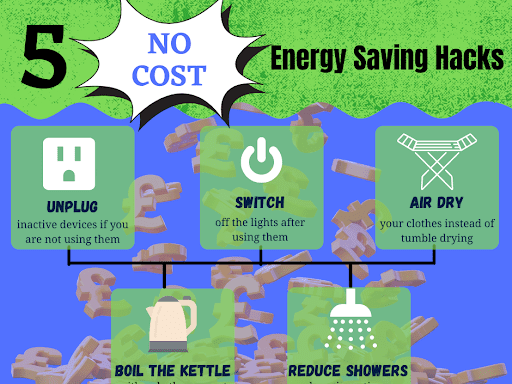
Introduction:
Living efficiently not only benefits the environment but also helps save money on utility bills. Incorporating energy-saving strategies into your daily life is a simple yet impactful way to make a positive difference. Explore the following tips to transform your home into an energy-efficient haven.
Upgrade to Energy-Efficient Appliances:
One of the most effective ways to save energy is by upgrading to energy-efficient appliances. Newer models are designed to consume less electricity while maintaining optimal performance. Look for appliances with the ENERGY STAR label, which indicates that they meet or exceed energy efficiency guidelines set by the U.S. Environmental Protection Agency.
Seal Gaps and Insulate:
Ensure that your home is well-insulated to prevent energy wastage. Seal gaps around windows and doors with weatherstripping or caulking. Adequate insulation helps maintain a comfortable temperature indoors, reducing the need for excessive heating or cooling. Consider adding insulation to the attic and walls for comprehensive energy savings.
Optimize Heating and Cooling Systems:
Proper maintenance and optimization of your heating and cooling systems contribute significantly to energy efficiency. Regularly clean or replace air filters, check for leaks in ductwork, and schedule professional maintenance to keep these systems running efficiently. Installing a programmable thermostat allows you to control temperature settings based on your schedule, further saving energy.
Harness the Power of Natural Light:
Maximize natural light in your home to reduce reliance on artificial lighting. Keep curtains and blinds open during the day, allowing sunlight to illuminate your living spaces. Additionally, consider using reflective window coatings to minimize heat gain in warmer months. This simple adjustment not only saves energy but also enhances the overall ambiance of your home.
Invest in Energy-Efficient Lighting:
Replace traditional incandescent bulbs with energy-efficient alternatives such as LED or CFL bulbs. These options consume less energy, last longer, and emit less heat. Additionally, make it a habit to turn off lights when not in use and utilize task lighting to illuminate specific areas, minimizing overall energy consumption.
Unplug Electronics When Not in Use:
Electronics and appliances continue to consume energy even when turned off but plugged in. Combat “phantom” or “vampire” energy waste by unplugging devices or using smart power strips. These strips can automatically cut power to devices that are not in use, preventing unnecessary energy consumption.
Conserve Water with Efficient Fixtures:
Energy savings extend beyond electricity consumption. Install water-efficient fixtures such as low-flow faucets and showerheads. Consider upgrading to a high-efficiency washing machine and dishwasher to reduce water usage. Conserving water not only helps the environment but also lowers the energy required for water heating.
Utilize Energy-Saving Landscaping:
Strategic landscaping can contribute to energy efficiency. Planting trees or shrubs strategically around your home provides shade in the summer and windbreak in the winter, reducing the workload on your heating and cooling systems. This natural approach to energy conservation enhances the beauty of your outdoor spaces.
Consider Solar Energy Options:
For a long-term investment in sustainable energy, consider installing solar panels on your property. Solar energy systems harness the power of the sun to generate electricity, reducing your reliance on traditional power sources. Many governments offer incentives or rebates for solar installations, making it a financially viable option over time.
Stay Informed and Educate Others:
Keeping yourself informed about the latest energy-saving technologies and practices is essential. Stay updated on energy-efficient products and adopt new strategies as they emerge. Additionally, share your knowledge with friends, family, and community members. Small changes collectively make a significant impact on energy conservation efforts.
Energy-Saving Tips for Efficient Living:
For a comprehensive guide on energy-saving tips and strategies, explore Energy-Saving Tips. This valuable resource provides expert insights, practical advice, and actionable tips to help you lead a more energy-efficient lifestyle, benefiting both your wallet and the planet.
Conclusion:
Incorporating energy-saving strategies into your daily routine not only reduces your carbon footprint but also leads to substantial cost savings over time. By adopting these tips and making conscious choices, you contribute to a more sustainable future while enjoying the benefits of an energy-efficient and comfortable home.

